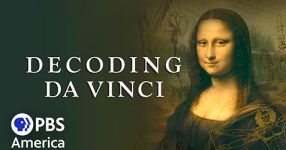At the heart of the documentary “60 Minutes: Child prodigies and geniuses” lies the captivating story of Alma Elma Deutser, a 12-year-old British composer with an unparalleled gift for classical music. The narrator sets the stage by expressing the mystery surrounding Alma’s extraordinary talents, emphasizing the scientific community’s inability to fully comprehend the complexities of her prodigious abilities.
Alma’s introduction unfolds with details about her mastery of the piano and the violin, showcasing her uniqueness among prodigies. What sets her apart is her accomplishment at the age of 10—an opera she composed, demanding a comprehensive understanding not only of playing instruments but also the intricacies of various musical elements. The documentary delves into Alma’s early musical memories, revealing a deep connection and love for music that manifested at the tender age of three.
The audience is taken on a journey through Alma’s early years, highlighting her rapid progression from playing instruments to composing at the age of four. Her teacher, Guy, reflects on the challenges of teaching someone who seems to have an innate understanding of music, describing Alma’s ability to generate melodies spontaneously. Alma’s vision, described as a blend of wisdom beyond her years, paints a vivid picture of a young girl living and breathing a story through her music.
The narrative shifts to Alma’s comparisons to historical musical prodigies, particularly Mozart. Alma, humble and appreciative, expresses her love for Mozart but asserts her desire to be the first Alma rather than a second Mozart. The documentary climaxes with Alma’s upcoming American debut in Cinderella, where she is set to showcase her talents on the piano, organ, and violin.
Alma’s journey becomes a testament to the uncharted realms of childhood prodigies, leaving the audience in awe of her musical prowess and pondering the origins of her extraordinary abilities.
Jake Barnett: A Teen Physicist Defying Expectations
The spotlight then transitions to Jake Barnett, a teenage physicist challenging preconceived notions about autism and intellectual capabilities. The documentary provides insight into Jake’s early fascination with numbers and his unique approach to remembering mathematical concepts. His parents, Christine and Michael Barnett, share the story of how Jake’s advanced intellect led him to pursue college-level courses at the age of eight.
As Jake’s journey unfolds, viewers witness his immersion in the world of physics, with a focus on his summer research project on PT symmetric lattice systems. The narration emphasizes Jake’s exceptional memory and his ability to recall mathematical information with astonishing precision. The audience is introduced to Jake’s transformation from a child with limited social skills to a confident and communicative teenager.
The documentary touches on Jake’s experience with autism, highlighting the gradual disappearance of certain traits as he delved deeper into his passion for science. Jake’s parents express their pride in his unique journey, emphasizing how his autism has played a pivotal role in his academic success.
The story concludes with Jake’s groundbreaking achievement—the publication of his physics research in the prestigious journal Physical Review. The documentary leaves the audience contemplating the intersection of talent, intellect, and neurodiversity, challenging societal norms and expectations.
Jack Andraka: The Teenager Revolutionizing Pancreatic Cancer Detection
The focus then shifts to Jack Andraka, a 15-year-old high school freshman whose curiosity and determination led to a groundbreaking discovery in the field of pancreatic cancer detection. The documentary unfolds the narrative of how Jack, driven by a desire to make a difference, developed a test for early detection of pancreatic cancer biomarkers.
Jack’s journey begins with his unconventional approach to scientific exploration, reading research articles during class and proposing his research project to renowned cancer researcher Dr. M. A. M. Rehman. The documentary emphasizes Jack’s passion for science, detailing his months-long dedication to learning basic lab techniques and conducting experiments.
The documentary sheds light on the potential impact of Jack’s discovery on saving thousands of lives by detecting pancreatic cancer in its earliest stages. While acknowledging the limitations of a small lab and a 15-year-old researcher, the documentary celebrates Jack’s remarkable achievement and the potential implications of his work.
Jack’s story concludes with a glimpse into his life as a celebrity scientist, his visits to the White House, and his laid-back family’s approach to his success. The audience is left inspired by the idea that age is no barrier to making significant contributions to scientific advancements.
Magnus Carlsen: The Chess Prodigy Redefining the Game
The final chapter of the documentary introduces Magnus Carlsen, a chess prodigy often referred to as the “Mozart of Chess.” The narrative unfolds with Magnus participating in a simultaneous chess match against 10 players, showcasing his extraordinary ability to play blindfolded, keeping track of 320 pieces and infinite moves.
Magnus’s journey from a normal kid growing up outside Oslo to challenging the legendary Gary Kasparov is explored. The documentary emphasizes Magnus’s unique approach to chess, combining brilliance with an apparent nonchalance. His impact on the chess world and the comparison to Mozart highlight the transcendence of his talent.
The documentary raises questions about the pressure and expectations placed on Magnus as he reflects on the fate of other prodigies. Magnus’s personality and his love for soccer and modeling add layers to the narrative, presenting him as a multifaceted individual. The audience is left in awe of Magnus’s ability to redefine the game of chess and break barriers in the world of intellectual pursuits.
“60 Minutes: Child prodigies and geniuses” offers a mesmerizing exploration of the extraordinary minds of child prodigies and geniuses, each contributing to their respective fields in unprecedented ways. The documentary leaves viewers with a sense of wonder and contemplation about the boundless potential residing within young minds.












